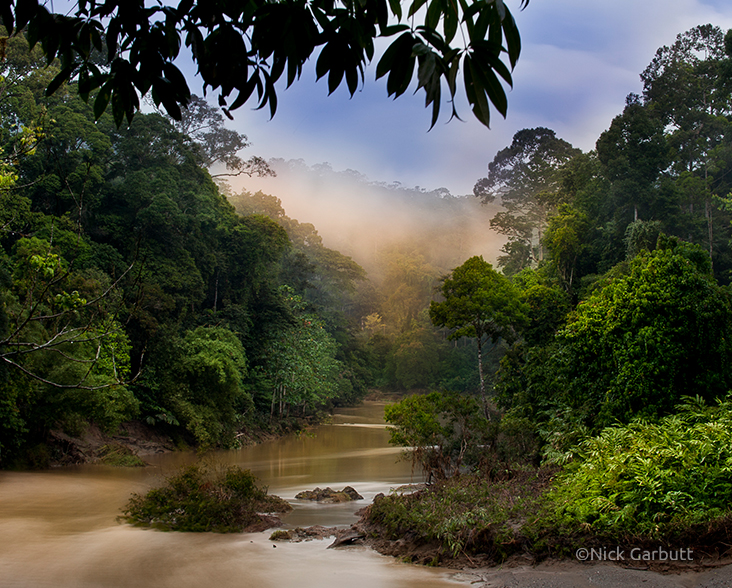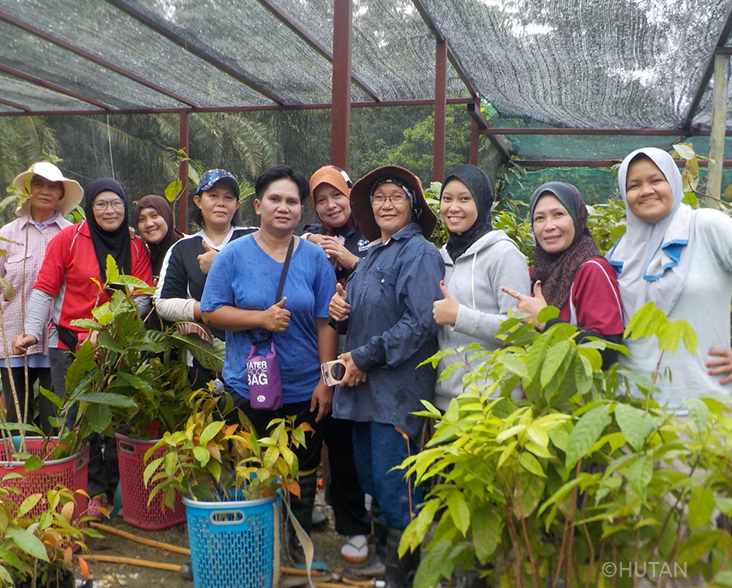MISSION
To study and conserve threatened habitats and wildlife species in Sabah and promote the sustainable management of natural ecosystems through a holistic, community-led programme and innovative cross-sectoral partnerships.

To study and conserve threatened habitats and wildlife species in Sabah and promote the sustainable management of natural ecosystems through a holistic, community-led programme and innovative cross-sectoral partnerships.
Hutan is a grassroots wildlife research and conservation initiative established in 1998 in Sabah, Malaysian Borneo. Hutan’s work primarily focuses on one of the most biodiverse regions in Malaysia – the Kinabatangan floodplain, home to some of Borneo’s most iconic species such as the Bornean orangutan, pygmy elephant and proboscis monkey, and renowned internationally as a biodiversity hotspot.
However, historic timber exploitation has broken up the natural forests into small isolated fragments. Today small islands of protected areas are surrounded by an expansive sea of oil palm plantations. Orangutans and other wildlife are trapped inside isolated forest patches too small for them to survive and have no choice, when trying to move from one patch to the other, but to encroach on people’s lands. This creates increasing human-wildlife conflicts that seriously affect the livelihoods and safety of local communities and oil palm plantations and, at the same time, threaten the local wildlife populations of extinction.
Hutan thoroughly studies and monitors the Kinabatangan’s biodiversity to better understand anthropogenic impacts and inform environmental conservation planning and management. These findings also guide Hutan stakeholders’ engagement to build greater synergies and develop new approaches for sustainable livelihoods compatible with biodiversity conservation.

World Land Trust (WLT) met Hutan while on a site visit to Borneo to assess the feasibility of working with another Bornean partner, LEAP Spiral. WLT and both Malaysian organisations formed partnerships as a result.
HUTAN now works in partnership with WLT to create wildlife corridors in the Kinabatangan floodplain, through reforestation and land purchase. The aim is to retain continuous habitat for orangutans and other wildlife.
As part of our Keepers of the Wild programme, WLT also funds a Wildlife Warden with Hutan.
Please see our Malaysian Borneo page.
Since 1998, Hutan has developed a holistic approach to conservation, combining scientific research, habitat protection and restoration, capacity building and community outreach.
Today, with a hundred staff from the local Sungai community, Hutan empowers the local community to manage and protect wildlife and other natural resources in the Kinabatangan.
We work in close partnership with a wide range of partners – including Sabah government agencies and oil palm plantations – to develop innovative solutions for a more harmonious coexistence between wildlife and people.
